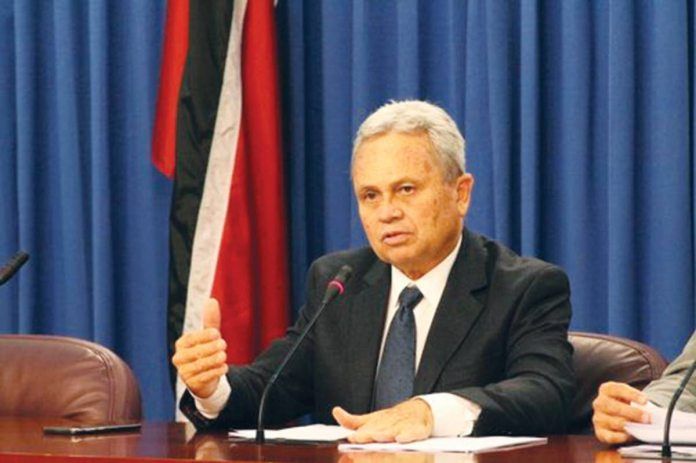(Trinidad Guardian) Stakeholder consultations on the idea to increase the retirement age gradually from 60 to 65 started last month with the National Union of Government and Federated Workers (NUGFW) and a meeting is also being arranged with the Public Services Association (PSA).
Talks with unions will be followed by talks with private sector bodies. Finance Minister Colm Imbert indicated this in the Senate yesterday in response to questions from Independent Senator Charisse Seepersad.
Imbert said the Finance Ministry recently commenced stakeholder consultations on the retirement age issue, beginning with the NUGFW. Discussions with other trade union bodies will continue in the near future. After the majority of trade unions are completed, talks will be held with the private sector.
“With respect to the execution of any increase in the retirement age, feasibility discussions are still at the embryonic stage…whereby concepts are still being worked out and therefore we can’t give any timeline for increase. We’re still in consultation stage,” Imbert said.
He indicated that the situation will be communicated once it is finalised.
On concerns raised in the 2021 National Insurance Board Report that the NIB may be forced to liquidate assets in the near future if the increasing disparity between contribution income and benefit expenditure continues, Imbert said the 10th Actuarial Report recommended examining three things to deal with the deficit between contributions and benefits.
These were examining the feasibility of increasing the retirement age, including the self-employed in the NIS system and examining the feasibility of increasing NIS contributions.
Imbert said the recommendation on the self-employed is “very expensive” and increasing NIS contributions is “something we wish to avoid unless absolutely necessary.” He said NIB’s investment income in 2021 was sufficient to cover the deficit.
To ensure that NIS contributions are paid in accordance with law, Imbert said the NIB established a compliance unit to oversee and manage the national insurance contributions, including “robust mechanisms” to assure contributions are submitted.
NIBTT also advised the Finance Ministry of ministries, departments and agencies with arrears of contributions.
On measures to boost the NIB’s investment portfolio, Imbert cited the 2018 order whereby NIBTT’s overseas investment limit was increased from 20 per cent to 30 per cent, allowing an increase in foreign investments to achieve more attractive returns on investments.
Finance is also reviewing NIBTT’s policy mix concerning the management of the NIS Fund as it relates to domestic and international investments.
“These measures have resulted in an exceptional investment portfolio return of 14.18% in 2021. This resulted in an increase in the net asset value of the National Insurance Fund by 7.43 per cent or $2.13 billion to an overall total of $30.78 billion.”
Imbert noted the number of contributors in the NIS system during 2021 was at 446,116, increasing by 10.4 per cent from 404,197 in 2020, whereas the number of beneficiaries only increased by 0.9 per cent from 204,613 to 206,569 in 2021.



